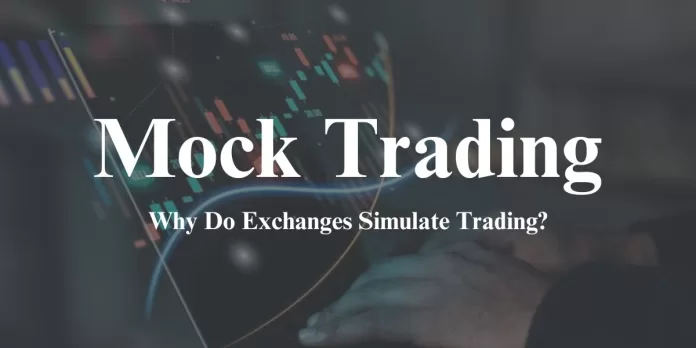Introduction
Mock trading, also known as simulated trading or paper trading, is a practice widely adopted by financial markets and stock exchanges to prepare market participants for real trading scenarios. In this blog, we will delve into the concept of mock trading, its significance, and why exchanges conduct these exercises.
Understanding Mock Trading
Mock trading is essentially a simulated trading environment in which market participants can practice buying and selling financial instruments, such as stocks, bonds, commodities, or derivatives, without actual financial risk. This is typically done through a specialized software platform provided by the exchange or brokerage, which replicates the real market conditions, including price fluctuations, order execution, and trade settlements.
Importance of Mock Trading
- Training and Education: Mock trading serves as a valuable educational tool for both novice and experienced traders. It allows traders to gain experience and test strategies in a risk-free environment before committing real capital. This is particularly crucial for newcomers who are learning the ropes of trading.
- Testing Trading Strategies: Seasoned traders often use mock trading to test new trading strategies or fine-tune existing ones. This enables them to assess the effectiveness of their strategies without the fear of losing money in real trades.
- Familiarization with Trading Platforms: Different exchanges and brokers offer various trading platforms with unique interfaces. Mock trading helps traders become familiar with the platform they intend to use, reducing the chances of errors or confusion during actual trading.
- Risk Management: It allows traders to practice risk management techniques, including setting stop-loss orders and profit targets, to protect their capital. This is an essential aspect of trading that can make or break a trader’s success.
Read: Systematic Trading: Mastering Risk Management and Drawdowns
Why Exchanges Conduct Mock Trading
- System Testing: One of the primary reasons exchanges conduct mock trading is to test and ensure the stability and functionality of their trading systems. Exchanges process a significant volume of orders and transactions daily, and system outages or glitches can lead to severe financial repercussions. By conducting mock trading, exchanges can identify and rectify any issues in a controlled environment before they impact real markets.
- Market Preparedness: Exchanges want market participants, including traders, brokers, and market makers, to be well-prepared for various market conditions. Mock trading helps in acclimating participants to volatile situations and sudden market swings, fostering a more robust and resilient market ecosystem.
- Regulatory Compliance: Regulatory bodies often require exchanges to demonstrate their ability to handle extreme market scenarios and ensure fair and orderly trading. Conducting mock trading allows exchanges to comply with these regulatory requirements.
- Risk Mitigation: By providing a platform for participants to practice risk management strategies, exchanges indirectly contribute to the overall risk mitigation in the financial markets. Traders who are better prepared are less likely to engage in reckless trading, which can trigger market instability.
Conclusion
In conclusion, mock trading is an indispensable component of the financial markets, serving both the interests of individual traders and the stability of the exchange itself. This simulated trading environment is a critical training ground for traders of all levels, allowing them to hone their skills, test strategies, and prepare for the rigors of real trading. Exchanges conduct mock trading not only for the benefit of participants but also to ensure the smooth functioning of the market and to meet regulatory requirements.
In a world where the financial markets are driven by rapid information dissemination and high-frequency trading, mock trading stands as a valuable tool to instill discipline, competence, and resilience in traders, ultimately contributing to the overall health of the global financial system.
Disclaimer: This blog has been written exclusively for educational purposes. The securities mentioned are only examples and not recommendations. It is based on several secondary sources on the internet and is subject to changes. Please consult an expert before making related decisions.


